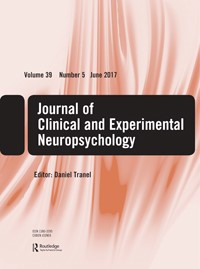Effects of acute beta-adrenergic antagonism on verbal problem solving in autism spectrum disorder and exploration of treatment response markers
April 12, 2017

|
Current research is beginning to suggest that propranolol, a drug originally developed to control blood pressure and heart rate by blocking beta-adrenergic receptors, which is also used for performance anxiety, might be helpful in autism spectrum disorders (ASD). However, in order to move forward to clinical trials, it is important to first establish what measures are most likely to demonstrate a response to the drug. Therefore, we determined whether single doses of propranolol could affect verbal problem solving in ASD. Twenty participants received either propranolol or placebo in a within-subject crossover study performed in a double-blinded, counterbalanced manner. Verbal problem solving was assessed via an anagram task. Participants solved anagrams more quickly with propranolol, and the response to drug was was related to baseline autonomic activity and baseline anxiety measures. This provides evidence that verbal problem solving measures may be worth including in clinical trials for highly verbal ASD patients, and suggests markers that can be tracked in these trials to learn who is most responsive to the drug for future individualization of treatment.
A paper on these outcomes was published in the Journal of Clinical and Experimental Neuropsychology in November 2016: http://www.tandfonline.com/doi/abs/10.1080/13803395.2016.1252724?journalCode=ncen20







